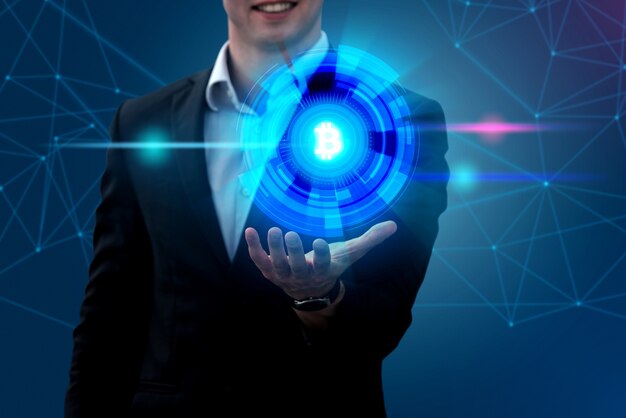Technology has always been a driving force behind societal change, shaping the way we live, work, and interact with the world around us. From the advent of the internet to the rise of artificial intelligence, technological advancements have brought about profound changes that impact every aspect of our lives. As we move further into the 21st century, the pace of technological innovation shows no signs of slowing down, and its effects are becoming increasingly pervasive. This article explores how technology is transforming various industries, enhancing efficiency, and creating new opportunities for growth and development.
The Digital Revolution: A New Era of Connectivity
One of the most significant ways technology is changing the world is through the digital revolution, which has brought about unprecedented levels of connectivity. The internet, once a novelty, is now an integral part of daily life, connecting people, businesses, and devices across the globe. This connectivity has given rise to new forms of communication, commerce, and collaboration, breaking down geographical barriers and enabling the exchange of information at lightning speed.
The Internet of Things (IoT)
A key component of this digital revolution is the Internet of Things (IoT), a network of interconnected devices that communicate and share data. IoT is transforming industries by enabling real-time monitoring, data analysis, and automation. In manufacturing, IoT is being used to optimize production processes, monitor equipment performance, and reduce downtime through predictive maintenance. In smart cities, IoT sensors are being deployed to manage traffic flow, reduce energy consumption, and improve public safety. The integration of IoT into everyday life is creating smarter, more efficient systems that enhance productivity and improve quality of life.
E-Commerce and Digital Payments
The rise of e-commerce is another example of how technology is changing the way we conduct business. Online shopping has become a mainstream activity, with consumers able to purchase goods and services from anywhere in the world with just a few clicks. This shift towards digital commerce has been facilitated by advancements in digital payments, which have made transactions faster, more secure, and more convenient. Mobile payment platforms, such as Apple Pay and Google Wallet, are making it easier for consumers to pay for goods and services, while blockchain technology is being explored for its potential to revolutionize the way we conduct financial transactions.
Artificial Intelligence and Automation: Redefining Work
Artificial intelligence (AI) and automation are at the forefront of technological change, with the potential to revolutionize industries and redefine the nature of work. AI systems are capable of processing vast amounts of data, learning from experience, and making decisions that were once the sole domain of humans. These capabilities are being harnessed to improve efficiency, enhance decision-making, and create new opportunities for innovation.
AI in Healthcare
In the healthcare industry, AI is being used to improve patient outcomes, reduce costs, and enhance the quality of care. AI-powered diagnostic tools are helping doctors identify diseases earlier and more accurately, while predictive analytics is being used to anticipate patient needs and optimize treatment plans. AI is also being used to automate administrative tasks, such as scheduling and billing, freeing up healthcare professionals to focus on patient care. The integration of AI into healthcare is not only improving the efficiency of healthcare delivery but also enabling more personalized and effective treatments.
Automation in Manufacturing
Automation is transforming the manufacturing industry, where robots and AI-driven systems are taking over tasks that were once performed by human workers. This shift towards automation is improving efficiency, reducing costs, and increasing production capacity. In factories, robots are being used to assemble products, perform quality control checks, and manage inventory. Predictive maintenance, a technology that uses data analysis and machine learning to predict when equipment is likely to fail, is helping manufacturers reduce downtime and extend the lifespan of machinery. The use of automation in manufacturing is not only driving productivity but also enabling companies to respond more quickly to changes in market demand.
The Impact of Technology on Society
The impact of technology extends beyond industries and businesses, shaping the way we live and interact with each other. From education and entertainment to transportation and communication, technology is changing the fabric of society in profound ways.
Education and E-Learning
Technology is revolutionizing education by making learning more accessible, personalized, and interactive. E-learning platforms, such as Coursera and Khan Academy, are providing learners with access to a vast array of courses and resources from anywhere in the world. Virtual classrooms and online collaboration tools are enabling students to learn at their own pace and connect with peers and instructors from different locations. The use of AI in education is also enhancing the learning experience by providing personalized recommendations, adaptive learning paths, and real-time feedback. As technology continues to evolve, it is likely to play an even greater role in shaping the future of education.
Transportation and Mobility
The transportation industry is undergoing a transformation driven by technology, with the rise of electric vehicles, autonomous cars, and smart transportation systems. Electric vehicles are becoming increasingly popular as a more sustainable alternative to traditional gasoline-powered cars, while autonomous vehicles are being developed to improve safety and reduce traffic congestion. Smart transportation systems, which use IoT and AI to manage traffic flow and optimize transportation networks, are being implemented in cities around the world to improve mobility and reduce environmental impact. The integration of technology into transportation is not only making travel more efficient but also contributing to the development of more sustainable and livable cities.
Communication and Social Interaction
Technology has transformed the way we communicate and interact with each other, enabling instant communication across vast distances. Social media platforms, such as Facebook, Twitter, and LinkedIn, have become an integral part of our daily lives, providing a space for people to connect, share information, and engage in discussions. Video conferencing tools, such as Zoom and Microsoft Teams, have made it possible for people to work and collaborate remotely, breaking down geographical barriers and enabling more flexible work arrangements. While technology has made communication more convenient and accessible, it has also raised concerns about privacy, data security, and the impact of digital interactions on mental health and social well-being.
Challenges and Considerations
While technology offers numerous benefits, it also presents certain challenges and considerations that must be addressed to fully realize its potential. Some of the key challenges include data security, privacy, and the ethical implications of AI and automation.
Data Security and Privacy
The widespread use of technology has raised concerns about data security and privacy, as more personal and sensitive information is being collected, stored, and shared online. Cybersecurity threats, such as hacking, data breaches, and identity theft, pose significant risks to individuals and organizations. Ensuring the security and privacy of data is essential for building trust and confidence in technology. Businesses must invest in robust cybersecurity measures, such as encryption, authentication, and access control, to protect their data and comply with data protection regulations.
Ethical Implications of AI and Automation
The rise of AI and automation has raised important ethical questions about the impact of technology on employment, decision-making, and society as a whole. As machines take over tasks traditionally performed by humans, there are concerns about job displacement and the future of work. Additionally, the use of AI in decision-making processes, such as hiring, lending, and law enforcement, raises concerns about bias, fairness, and accountability. Addressing these ethical implications requires a careful balance between innovation and regulation, ensuring that technology is used in ways that benefit society and promote social good.
Conclusion
Technology is reshaping the world around us, bringing about profound changes in industries, businesses, and society. From the digital revolution and the rise of AI to the impact of automation and the challenges of data security, technology is driving innovation, improving efficiency, and creating new growth opportunities. However, as we continue to embrace technological advancements, it is essential to address the challenges and ethical considerations that come with them. By doing so, we can harness the transformative power of technology to build a more connected, efficient, and equitable world.






